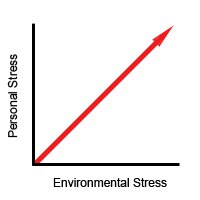Since the earliest times, humans have needed to be sensitive to their surroundings to survive, which means that we have an innate awareness of our environment and seek out environments with certain qualities.
First of all, humans have a strong need for safety and security and look for those attributes in their environment. We also look for physical comfort, such as an environment with the right temperature. In addition, we seek an environment that is psychologically comfortable: for example, environments that are familiar, but offer the right amount of stimulus.
Retailers and the hospitality industry know this very well and try to provide an atmosphere that creates a positive customer experience and offers three important attributes: comfort, safety, and entertainment. These attributes are equally important in healthcare as well.
How the environment can impact you?
Below are just a few examples of how the environment can impact you.
- The environment can facilitate or discourage interactions among people (and the subsequent benefits of social support). For example, an inviting space with comfortable chairs and privacy can encourage a family to stay and visit with a patient.
- The environment can influence peoples’ behavior and motivation to act. For example, a dingy corridor filled with extra hospital equipment will invite staff to leave another item in the hall, whereas a clean corridor and adequate storage will encourage staff to take the time to put the item away.
- The environment can influence mood. For example, the results of several research studies reveal that rooms with bright light, both natural and artificial, can improve health outcomes such as depression, agitation, and sleep.
What about stress?
Perhaps most importantly for health, the environment can create or reduce stress, which in turn impacts our bodies in multiple ways. This is because our brain and our nervous, endocrine, and immune systems are constantly interacting. As neuroscientist Candice Pert puts it, “What you are thinking at any moment is changing your biochemistry.”
Thus, the stress of a noisy, confusing hospital room might result in a patient not only feeling worried, sad, or helpless, but experiencing higher blood pressure, heart rate, and muscle tension. In addition, hormones released in response to the emotional stress could suppress the patient’s immune system, causing his wounds to heal more slowly.

Stress is an important medical consideration, and creating an environment that reduces stress is a key piece of improving health outcomes.